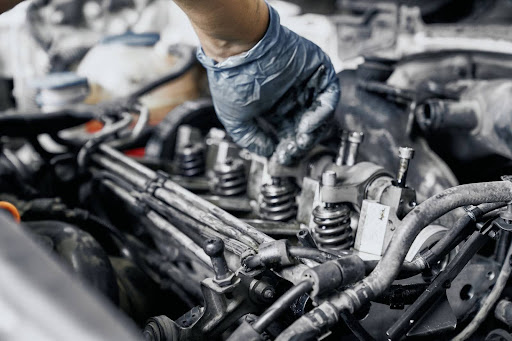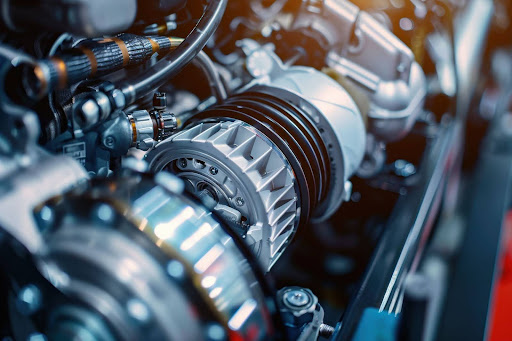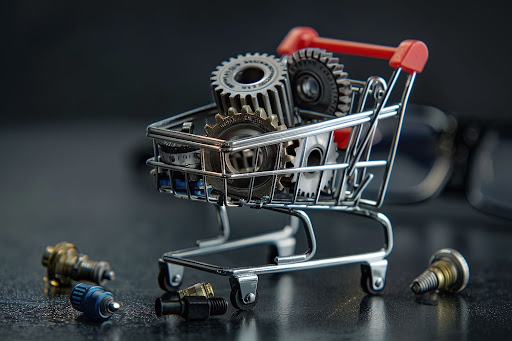The engine coolant, also known as antifreeze coolant, flows through your Commercial Vehicle’s engine and radiator to protect your engine from extreme temperature conditions. During the hot summer, it prevents engine overheating, and in the winter, it keeps your engines from freezing when the temperature drops below 32o Fahrenheit or 0o Celsius. Coolant prevents both overheating and freezing and is essential for your vehicle to deliver optimum performance in all kinds of weather conditions.
Regularly flushing out and refilling lubricants is an essential maintenance practice that helps prevent extensive damage to the radiator, water pump, and pipes in the engine cooling system. Over time, even coolant stops working due to the rust and gunk building up, which affects your vehicle’s cooling system.
Not only is it essential to change the engine coolant during a given interval, but it is also important to choose the right kind of coolant for your commercial vehicle.
What is a Good Coolant?
A suitable engine coolant plays a crucial role in maintaining the lifespan and performance of the commercial vehicle. There are many different types of coolant, so it’s important to know what variety is right for your vehicle.
1. Water
Most coolants for engines are made with about 50 percent of water. Antifreeze, by itself, does not have any water in it. Making coolant requires following the manufacturer’s instructions and adding water to antifreeze. Some vehicle owners choose this method, while others buy pre-mixed coolants.
2. Ethylene Glycol
Ethylene glycol is the main ingredient in most engine coolants. It is a clear, viscous liquid primarily produced by reacting the chemical compound ethylene oxide with water. This chemical ensures that the liquid in your vehicle’s engine neither freezes in cold weather nor evaporates in hot weather.
3. Propylene Glycol
Instead of ethylene glycol, some engine coolants use propylene glycol. Due to higher viscosity, Ethylene glycol tends to conduct more efficient heat transfer. Propylene glycol is considered less dangerous if ingested, which is a big selling point for people who own vehicles and have kids or pets.
4. Corrosion Inhibitors
Most engine coolants are made up of water with ethylene glycol or propylene glycol as the base. Different types of coolants are made by adding various anti-corrosion additives. These extra ingredients can be different in each country depending on their point of origin.
Such as an anti-corrosion agent, silicates cannot be used in engine coolants for vehicles made in Asia. On the other hand, the coolant for European vehicles uses a mix of silicates and carboxylates that prevents corrosion.
The best engine coolant for your car depends on the vehicle type, age and place of manufacture. Knowing the model and year of your vehicle will help you select the right coolant. Choosing the wrong product can result in poor performance or worse, instant engine failure.
How to Choose the Right Grease?
All grease is made up of three basic components: lubricating oil, thickeners and additives. Grease thickness is described by the grades assigned by the National Lubricating Grease Institute (NLGI). The NLGI grade is an industry-accepted grade, and many fleet owners consider the NLGI grade as the primary indication of “good” grease. The mix of thickeners to the base oil is the most common differentiator among grades.
Consider the following while choosing the right grease for your needs.
1. Base Oil
There are three main types of base oils: mineral, synthetic, and vegetable oils. In terms of protection, performance temperature and weather resistance, synthetic oils are considered to offer the best results, followed by good shear stability.
2. Additives
Additives are used to enhance the features and qualities of each grease and boost its performance. The most common additives are extreme pressure additives, oxidation, rust, corrosion inhibitors and polymers used to increase adhesiveness that provides increased wear and tear protection.
3. Thickener
Thickeners enable all grease components to stick to each other better, which increases the overall efficiency of every grease.
4. Consistency
This property is defined by the National Lubricating Grease Institute (NLGI), which is used to determine the level of softness or hardness of every grease. Every grease is assigned a specific NLGI number that goes from 000 to 6.
5. Viscosity
Grease viscosity determines its ability to remain stable and offers effective protection against friction. While lower viscosity is ideal for high-speed applications, higher viscosity provides greater stability when exposed to heavy loads.
Each lubricant has a different set of characteristics that’s why Tata Genuine Parts presents multiple coolant and grease options for you to choose for your commercial vehicle. Tata Genuine Parts Coolant and Grease are made with vehicle design specifications and deliver longer service life for your vehicle.





